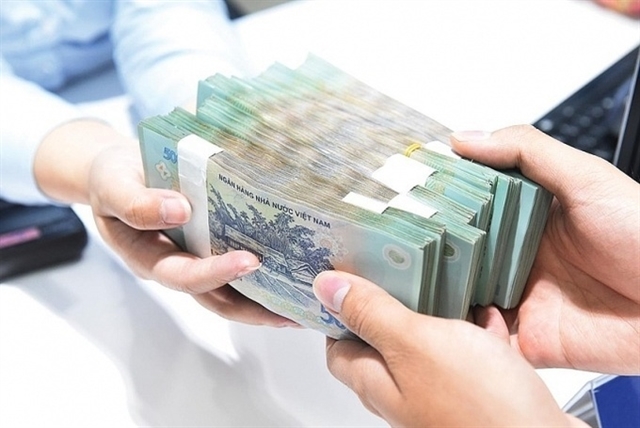 Economy
Economy

Online fraud is expected to increase rapidly in the coming years due to the robust development of e-commerce. This issue requires stronger State governance.

|
| Goods delivered to a shopper. New methods of fraud on e-commerce platforms focus on high-value goods and imported products. —VNA/VNS Photo Trần Việt |
HÀ NỘI — Online fraud is expected to increase rapidly in the coming years due to the robust development of e-commerce. This issue requires stronger State governance.
As of this October, the market surveillance forces nationwide have inspected nearly 2,500 commercial activities online and detected 2,300 violations, including violations on e-commerce platforms and other acts taking advantage of e-commerce to trade in smuggled goods, goods of unknown origin, goods infringing intellectual property rights and counterfeit goods, with fines handed out totalling more than VNĐ18 billion (US$782,600).
According to a recent report by the Ministry of Industry and Trade, prevalent trading of banned goods, fake products, goods infringing intellectual property, goods of unknown origin and poor quality goods on websites, e-commerce platforms and social networks are threatening the sound development of the e-commerce sector and seriously affecting consumer confidence.
Trần Hữu Linh, general director of Market Management Department under the Ministry of Industry and Trade, said new methods of fraud were appearing on e-commerce platforms, focusing on high-value goods and imported products.
Scammers may set up multiple facebook accounts and run ads, using professional product photos to attract buyers and only reply to questions on addresses and phone numbers through private message. Some even livestream and receive hundreds of orders per day.
Along with the strong development of technology, consumers now just need a mobile phone to access any e-commerce site and they can conveniently place orders with many discounts.
Facebook in July shared key insights into Vietnamese consumers’ behaviours towards year-end and mega sales days and found that up to 79 per cent of shoppers said they had made purchases online and 82 per cent used mobile devices because it was safer and more convenient.
A further 60 per cent of shoppers reported turning to remote and online channels to send gifts.
Stronger supervision
"E-commerce is an inevitable trend of the technology age, but it also presents a big challenge for the fight against smuggling, trade fraud and counterfeit goods,” Linh said.
The leader of the Market Management Department said in the next 2-3 years, the rate of trade fraud in the e-commerce environment would account for about 50-60 per cent of all forms of commercial fraud in general.
Linh said in 2021 and the following years, the market surveillance forces would focus on the fight against online fraud and counterfeit goods.
The forces would check owners of e-commerce platforms and sellers on social networks, Linh said.
“Because even traditional sales are now pre-agreed on social networks," Linh noted.
To strengthen the management and supervision of online trading, build trust for consumers and protect merchants and businesses, the Ministry of Industry and Trade said it would continue directing the Market Management Department to collaborate with other relevant agencies to review and propose amendments to regulations on handling violations in e-commerce.
In which, special attention would be paid to conditions for setting up e-commerce websites and employing e-commerce to do business; increasing transparency of product information; management of new business models, intermediary service providers, or auxiliary services for e-commerce such as warehouses, delivery and payment.
The authority would review and categorise the list of e-commerce websites and thereby propose appropriate inspection and handling plans to ensure efficiency.
On September 25, the Government issued Decree No. 85/2021/NĐ-CP regulating e-commerce platforms and activities in Việt Nam. Decree 85 amends and supplements a number of articles of Decree No. 52 issued in 2013 on e-commerce activities. Decree 85, taking effect on January 1, 2022, will cover local traders as well as foreign businesses that conduct e-commerce activities in Việt Nam.
In addition to many new regulations on the management of e-commerce activities, the decree includes a number of new regulations to strengthen the protection of consumers when trading online.
For example, the sellers are responsible for providing information about their products and services. The decree provides detailed regulations on registration procedures for authentication of e-contracts. Traders providing logistics services are now officially recognised as a subject of e-commerce activities.
The regulations will also impact foreign investors that are involved in e-commerce activities as well as foreign traders who are e-commerce suppliers and service providers.
Foreign businesses including those involved with cross-border e-commerce and B2C e-commerce businesses must comply with local laws. As per the decree, foreign traders engaged in e-commerce activities are defined as those who set up e-commerce websites under Vietnamese domain names (for example .vn); those that set up e-commerce websites that are in the Vietnamese language; and those that set up e-commerce platforms that have more than 100,000 transactions originating from Việt Nam in a year.
For such, the foreign business will be required to set up a representative office in Việt Nam. — VNS









.jpg)